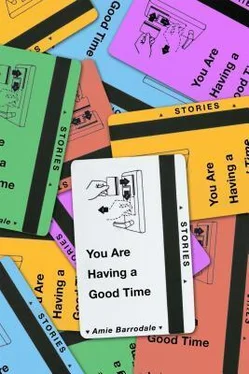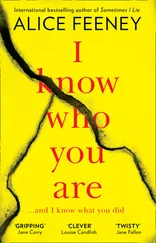“Uh, no. No, I can’t do that,” the dancer woman said. “Carpal tunnel. Lifetime of typing!” She turned to all the retreatants and said, “Use ergonomic keyboards!”
“I can’t do it either,” the elderly woman said. “Could you explain it better? I don’t think we’re getting it.”
* * *
After two weeks, during a break, Bill came and sat beside Ema. The dancer-stretcher was on the floor with her heel to her cheek. After some small talk, Ema said, “How long does it take to do a thousand prostrations?”
“Not very long,” the dancer-stretcher said, even though no one asked her. She said, “About two, or two and a half hours.”
“It always took me longer,” Bill said. “Boy, you’re flexible.”
“Well, either way,” Ema said, “that’s a long time to stay focused.”
“But it really isn’t,” the dancer-stretcher said. “I mean, when you think about it.” She flopped forward to full splits and tapped her forehead to the carpet. Ema thought she had to be at least fifty-five.
“Who said I was focused?” Bill said.
“I did ngondro two times,” the dancer-stretcher said. “I did the Drukpa Kagyu ngondro and the Longchen Nyingthig.”
“So you’ve done, in your life, two hundred thousand prostrations?” Bill asked.
The dancer gave a short nod. “The first time, I did them too fast — I was told to. The second time, I did them slower, and that was better. The first time, it was too much. We had armed gunmen come into the place where we were practicing.”
“Oh my God.”
“It was too much.”
“What did they do?”
“They tied us up and kicked us around.” She held her hands as though she had a machine gun. “It was too much. But then we called up this lama, and he did a mo , and he said it was okay to go on.”
A blind woman came and sat on Ema’s other side. She dipped her tea bag methodically in a cup of hot water and turned her eyes from person to person.
“Hey,” Ema said to the dancer, “I’ve been meaning to ask you this, because I saw you sleeping in the shrine room at first, and then I didn’t. Where’re you sleeping?”
“I’m sensitive to the heating system,” the dancer said. “I have a secret place.”
“Where?”
The blind woman laughed.
“What?” the dancer said.
The blind woman said, “Nothing. Just, you know. ‘The secret place.’ I think we all have one.”
The dancer lifted one shoulder. She said, “Gross.”
Ema would have grilled the dancer, but apropos of nothing, the blind woman began to ask Bill about the nature of reality. The blind woman wore color-coordinated outfits, and Ema always wanted to ask her how she did it. The blind woman offered reiki during breaks, and Ema kept meaning to sign up so she could get her alone and ask the secret. Probably just something on her tags.
“If it’s all a dream…” The blind woman was talking to Bill. She had her face pointed at him. She said, “If I’m not real, then what about science? What about objective truth and reproducible scientific data?”
“But that could be a dream, as well,” the dancer said.
The blind woman turned to face the dancer-stretcher and said, “Sloane, think about it. Someone does an experiment in one place, and a hundred years later, in an entirely different place, it can be done again with the same results. How is that a dream? Fusion has been taking place on the sun before humans existed, so how is the atom bomb imagined.”
“Your name is Sloane?” Ema asked. She had a funny feeling.
“But all of that is in your mind,” the dancer said. “Sloane Newam. You’re Ema, right? Nice to meet you.” She rolled through the splits, then bent her knees and arched her back to touch the balls of her feet to her forehead.
“That’s impossible,” Ema said.
“I think they’re just two understandings of reality,” Sloane Newam said. “Both are completely logical. See, in the Western sense, a subject precedes an object. Or I mean — sorry — an object precedes a subject.”
“No, I mean it’s impossible that you’re Sloane Newam. I mean, the Sloane Newam? Sloane Newam the writer?” Ema said.
“Used to be, yes. Now I do yoga.”
Sloane Newam rolled onto her neck and tried to touch her toes to the ground in front of her as she explained to the blind woman that, relatively, there were truths, but ultimately, there was nothing.
“I’m freaking out,” Ema said. “The same Sloane Newam who interviewed Gorbachev?”
Addressing both Ema and the blind woman, Sloane Newam got her feet onto the ground. She lifted herself to standing and said, “Take it like this. This table. When I reach out and touch it, I can’t experience anything but my mind. I’m not experiencing a table, but rather, sense data — so-called touch, sight — is being transferred from my fingers to my brain.”
“I’m seriously actually freaking out,” Ema said. “Can everyone please be quiet?” She wanted to touch Sloane Newam.
But the blind woman seemed moved by what Sloane Newam had said. She touched the table and said, “So the scientific data is in my mind as well.”
Ema let out a groan and stormed off.
* * *
It was a special day. In the shrine room, Bill had set up a large flat-screen TV, and on it was a ceremony for the teacher, who was going into a yearlong retreat. Sloane and Ema were servers, and sat outside the shrine room with group of five others serving the meal. Inside the shrine room, people watched the TV, for the most part, from cushions. They were seated Indian-style on the floor, and the mood was quiet and still, as though they were waiting to, or wondering if they would, feel something. The ceremony itself was being held in a gymnasium on the other side of the country. Twelve Asian women in brightly colored dresses were dancing. Ema still hadn’t approached Sloane Newam to tell her the truth about what was happening. Whatever that truth might be — she herself wasn’t sure.
“He is utterly liberated from the skandhas ,” the people inside the shrine room began chanting. “He has cut the knots.” Ema noticed that Sloane Newam was chanting, so she started to chant, too.
A server whom Ema had not noticed before stood abruptly and said, “Do we set the rice bowl down on the ground?”
“We hold it,” Sloane Newam said.
“Exactly,” Ema said.
“You hold their bowl?” The man was in his sixties, and he looked desperately panicked.
“No, the pot of rice.”
“Right, of course.”
“Rice,” Bill said. It was the first time Ema had seen him flustered. “No! No. Not rice. No rice.” He held a flat palm toward Sloane Newam, indicating she was not to stand.
“If you can’t hold it,” Sloane said, “kneel on one leg, and balance the pot on your knee.”
Sloane Newam said, “Enter the shrine room with elegance.”
There was a soft clacking sound. It was the blind woman.
“To the shrine,” Bill said. “To the shrine, to the shrine.”
“With elegance!”
“Do we bow?” the desperate man asked, and Sloane Newam pushed him forward. Ema was at the threshold to the shrine room when she realized all the people inside, hundreds of them, were singing, “Ema, the phenomena of the three worlds of samsara, not existing, they appear, how incredibly amazing.” She stopped dead. She set the pot of rice on the ground. Then they all stared at her. They kept saying it! Were they crazy people? Did they think this was a game. “Who arranged this?” she said.
She saw Bill raise his eyebrows at Sloane Newam. Others of them looked confused, but they all kept staring at her and singing that song. She picked up the pot and went to a quadrant. It was a back one. You were supposed to start at the head. Some divorced guy was really enjoying this psycho gag. He was a bald loser, and now he was smiling at her, singing, “Ema, the phenomena, of the…”
Читать дальше












